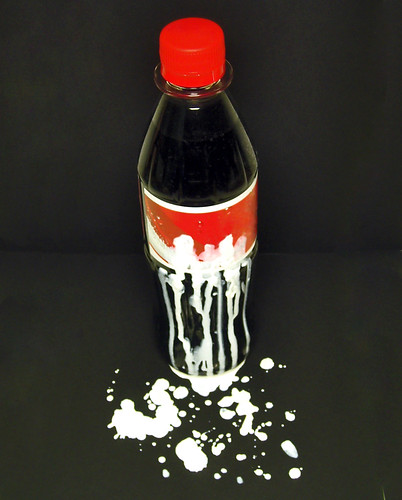Open Source Brand: No Logo Open Source?
My post about SugarCRM’s original way to abide the GPL yesterday has been reported by Matt Asay, raising the open source brand issue. Building a brand takes time and money, and just like in any other market drives the demand. What is specific to open source branding?
 Logo meltdown by Asta
Logo meltdown by Asta
On the 20th of August 1997 the Linux trademark dispute was resolved, since then anyone in the open source community knows about the importance of brand names. Later on Red Hat started to protect its trademark, bringing the dispute on a commercial ground.
The non-excludable nature of open source code makes difficult to prevent competitors from “stealing” customers, and the argument on the table is, in Matt’s words:
You can give away your software. You should never give away your brand.
Trademark laws all over the world enable consumers of products to know the (real) source of the products they use, allowing them to distinguish those products from the products of other vendors. Consumers this way can’t be fooled into purchasing a product or a service of one company while believing it is a product of another company.
Few open source firms have the ability to deliver worldwide open source services and support, and the demand for entrepreneurial open source ecosystems is much greater than the supply. Newcomers and open source incumbents could better exploit the opportunity to collaboratively create ecosystems. Open source product firms could re-invent different channel programs, providing qualified resellers with the real ability to deploy even complex solutions. On the other hand newcomers should stop thinking that re-branding third-parties’ open source products is enough.
There are still just two ways to make money from OSS, named “best code here†and “best knowledge here†approaches, but none of them scale very well, unless you know how:
- to become the market leader;
. - to manage collaborative software development.
But appropriating returns is critical and Open Source Franchising is still a good option.
PS: Matt, “badgeware” is probably the most used expression referring to the visibility constraint, which I am not saying is bad at all. Protecting Open Source IP is important, I agree.

Geoff SoftwareClub Dodd 10:10 am on December 15, 2007 Permalink
As i see it, open source has a real branding problem. Something like OpenOffice just hasn’t had the brand build up of a suite like Ms Office. So people automatically lower their expectations and their interest. Same with Gimp and a branded graphics application. Same perceptions and lowered image and expectations.
Roberto Galoppini 9:08 pm on December 16, 2007 Permalink
I wouldn’t say that Open Source has, at large, a branding problem. Few open source programs and platforms are quite in the know today. For example, talking about OpenOffice.org, I can tell you that only in September in Italy it got mentioned in more than 200 articles. Not bad, I would say.
On the other side is true that most of OS programs are unknown, and that is why I believe there is a need for open source awareness campaigns.